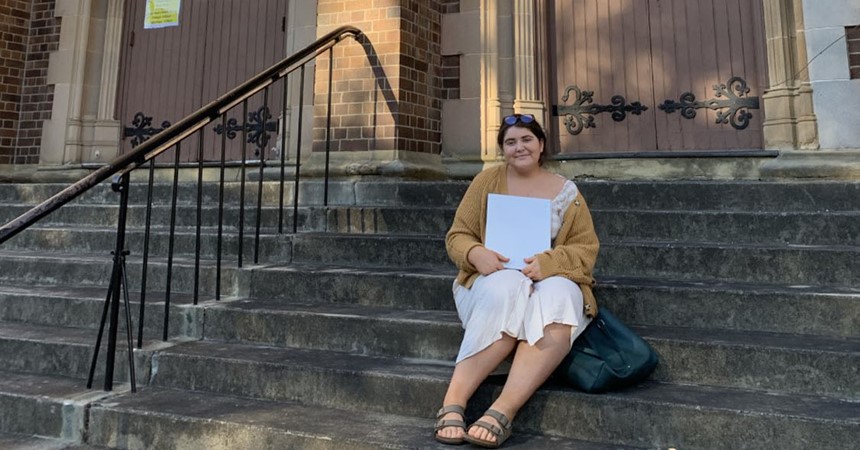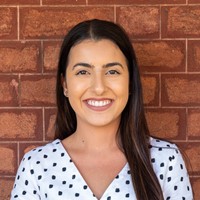Coupled with this, Sophie was awarded an Aboriginal nursing cadetship at St Vincent’s Hospital, Sydney where she is a student nurse.
A proud descendant of the Wiradjuri nation of Aboriginal people, Sophie graduated in 2019 as St Joseph’s College, Lochinvar’s captain of service and social justice.
A natural progression from her portfolio, it comes as no surprise to see her follow a holistic career pathway. Her ultimate goal is to deliver primary healthcare in remote, indigenous communities.
1. What Catholic school/s did you attend?
Rosary Park Catholic School, Branxton for my primary education and St Joseph’s College, Lochinvar for secondary.
2. Do you know why your parents chose a Catholic education for you?
Faith has always been an extremely important factor in our household. I think my parents chose the Catholic education system because it fosters and promotes faith on a community and inclusive level.
3. What indigenous nation do you and your family belong to?
My family and ancestors are from the Wiradjuri nation.
4. What inspired you to pursue nursing?
Ever since I was young, nursing was an interest to me. I wanted a career that had a holistic goal of caring for others. It was when my mum developed a brain tumour in 2012 that I really got to witness the compassion, strength and resilience of nurses from a closer perspective. I decided I too wanted to be a nurse and set my goals from there. These goals included doing a school-based traineeship with Hunter New England Health at Maitland Hospital alongside my preliminary and HSC years. The further I was exposed to this career the more I knew it was the field I wanted to follow.
5. What goals have you set yourself?
My short-term goals involve gaining experience in as many different skills and scenarios as possible, as well as being able to guide and support other younger indigenous people who are interested in a Bachelor of Nursing. Once I finish my Bachelor of Nursing degree my next goal involves doing a Bachelor of Midwifery. I’m very interested and passionate about indigenous rural and remote nursing and the healthcare system in these communities so I would love to do some work around rural Australia.
6. How has your cultural identity shaped your experiences and beliefs?
My culture plays an extremely important role in my experiences and beliefs. With my mother being an Aboriginal artist, growing up I was always aware of the importance of my culture. Having the awareness of my cultural identity added a perspective to life that ultimately shapes all that I am. I value my culture’s history, pain and pride and acknowledge that my story is embedded everywhere I go. This is something I’ve been lucky enough to carry with me and share throughout my whole life.
7. What is the one thing you wish more people knew about Aboriginal people?
That beyond what is portrayed in the media or by negative words, we as a community are talking to you all of the time – we have been talking forever. We aren’t speaking to take attention away or to whine, we are simply speaking because behind what is known there are still injustices within our systems. Aboriginal people are speaking for people to listen so that we can all work together to improve society.
8. How do you think embedding indigenous ways within our education system will improve outcomes for all students?
It will promote aspects such as cultural sensitivity and cultural awareness for all students. I think it’s important that as we move towards reconciliation, we acknowledge our country’s past and incorporate as much traditional culture as possible to strive towards a united future.
9. How can we appropriately set high expectations for indigenous students?
I don’t necessarily think we need to set high expectations for indigenous students. I believe it’s more about giving us the support we need to achieve our goals. This could include having more cultural practices available in our schools, being culturally aware and making support services such as counselling, tutoring and career advice available to the students.
10. Is faith a big part of your life? If yes, how has it helped?
Yes, faith is a big part of my life. Through all of life’s challenges I have always turned to my faith to find comfort, calmness and advice. In the career I have chosen to pursue I think having faith is essential.























































































